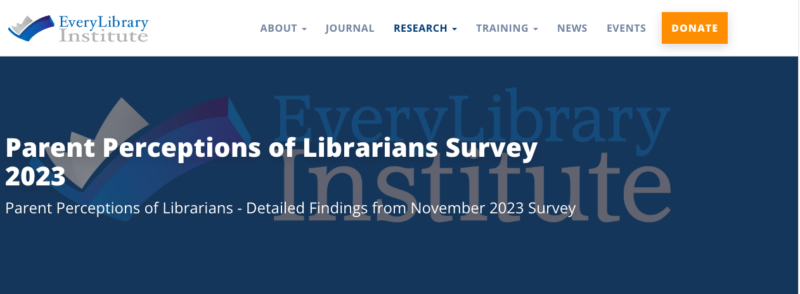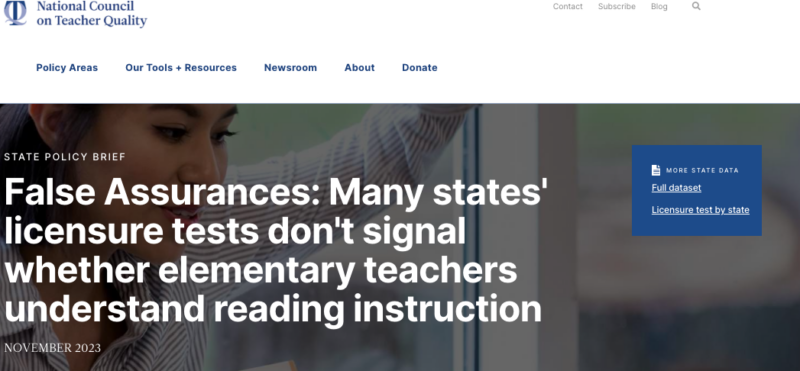With faculty utility season in full swing and the competitors for acceptance into high faculties extra aggressive than ever, college students are turning to AI-powered instruments for utility assist, reveals a brand new survey from Brainly. Seventy p.c of highschool juniors and seniors imagine AI-powered instruments, together with ChatGPT, generally is a useful resource in brainstorming concepts for his or her faculty essays or brief reply responses. Brainly’s survey earlier this yr reveals that high-school college students are additionally accessing AI-powered instruments, reminiscent of these built-in into Brainly’s academic app, for individualized homework assist.
Brainly’s survey comes when the acceptance price among the many greatest universities continues to shrink, making it tougher for college students to realize entry to their high increased schooling decisions. For instance, the Faculty Board studies that in 2022, Harvard obtained functions from 61,220 college students – the highest-ever variety of candidates, however solely accepted 1,214, the elite college’s lowest acceptance price.
The survey information underscores a basic change in how college students make the most of AI instruments for school functions. Fairly than relying solely on AI to write down their essays, college students use these instruments to foster essential pondering, encourage creativity, and brainstorm potential matters. The statistics exhibit a nuanced and balanced method, showcasing that AI just isn’t changing conventional steerage however enhancing and complementing it.
Highlights of the survey embrace:
- Growing reliance on AI-powered instruments: Almost 70% of surveyed seniors imagine AI-powered instruments, together with ChatGPT, are precious assets for brainstorming concepts for school essays and short-answer responses. This information reinforces the rising acceptance and reliance on AI for inventive inspiration within the aggressive area of faculty admissions.
- Rising belief in AI instruments: Nearly 60% of seniors specific belief in responses generated by AI-powered instruments, highlighting confidence within the know-how’s potential to information them by means of the applying course of. This discovering emphasizes that college students view AI as a useful and reliable ally in navigating the intricacies of faculty functions.
- Juniors plan to have interaction AI instruments: Almost 73% of highschool juniors are contemplating leveraging AI-powered instruments for brainstorming concepts. This means a proactive method by juniors to combine AI into their utility preparation, showcasing a shift in how college students method faculty admissions properly upfront.
- Collaboration with conventional steerage: Whereas AI instruments are gaining reputation, the survey reveals that seniors additionally search steerage from conventional sources, with 57.5% consulting a university counselor and 48.3% turning to a father or mother or member of the family. This means a complementary relationship between AI and conventional assist methods within the faculty utility journey.
“Brainly’s survey outcomes intently align with what I see within the college students I work with and put together for school,” mentioned Cammy Barber, MEd, College Counselor & Division Chair, St Augustine Excessive College, St Augustine, Fla. “College students are in search of methods to avoid wasting time and guarantee them that they’re on the fitting path. AI-powered instruments will help college students brainstorm concepts for a university essay. It may give recommendations for the way to write a university utility essay for many who lack writing abilities, too. It’s additionally an effective way to slender a scholar’s search standards when in search of a university.”
The “Public Libraries and E-book Bans – Guardian Notion Survey” gathered insights from 1,527 mother and father and guardians with kids underneath 18 in two surveys throughout October and November 2023. The surveys requested mother and father and guardians about their notion of librarians’ trustworthiness as professionals and curators of a library assortment. The outcomes are detailed in a brand new report from EveryLibrary Institute and E-book Riot.

High-level findings are:
- A powerful 92% of fogeys, grandparents, and guardians belief librarians to curate applicable books and supplies.
- 90% of fogeys report being snug permitting their little one to pick out their very own supplies and 96% really feel their kids are secure inside the library.
- 83% agree that librarians know what books kids would love; 77% agree that librarians are pleasant and approachable; 77% agree that librarians make the library a spot for enjoyable and creativity; and 85% agree that librarians assist kids’s studying.
- 91% of fogeys and guardians say that they belief public librarians and 86% discover college librarians reliable.
- Mother and father are of combined opinion on whether or not they suppose public librarians have a political agenda:
- Sure, and they need to = 35%
- No, however they need to = 9%
- Sure, and they need to not = 12%
- No, and they need to not = 44%
- 85% of fogeys report being glad or very glad with librarians
The survey outcomes exhibit that librarians in faculties and public libraries are trusted by households of varied backgrounds and revenue ranges and are valued in society. Librarians are valued in society and are central to schooling and communities. They foster secure, partaking environments that assist studying and creativity, with their experience and heat resonating deeply with mother and father nationwide.
“This survey reveals how out-of-touch politically motivated e book banning and censorship teams are,” mentioned John Chrastka, EveryLibrary Institute Govt Director. “Opposite to the narratives that so-called father or mother rights teams are advancing, mother and father throughout America worth librarians’ roles in our communities and our kids’s schooling. Professional-censorship teams don’t symbolize the overwhelming majority of fogeys or guardians of their beliefs about librarians, studying, schooling, and civil society.”
“E-book Riot is happy to proceed collaborating with EveryLibrary Institute on this vital challenge. This survey is the subsequent step in our shared purpose of championing literacy, supporting libraries and librarians, and studying about parental perceptions of the work that librarians do,” mentioned Vanessa Diaz, E-book Riot Managing Editor. “It’s a pure extension of Kelly and Danika’s tireless efforts in spreading consciousness of the state of censorship and books bans within the US, and we hope as ever that this analysis will each educate and be a catalyst for change.”
“We’re as soon as once more excited to accomplice with EveryLibrary on assessing and understanding parental perceptions of the general public library,” mentioned Kelly Jensen from E-book Riot. “This sequence of surveys additional our data on what libraries are doing proper and permits us to see the place and the way we will advocate for higher understanding the roles libraries play within the lives of the common individual. We proceed to be thrilled to see the overwhelming majority of fogeys suppose that the general public library is a secure place for his or her kids.”
Please evaluation the whole survey findings at https://www.everylibraryinstitute.org/parent_perceptions_librarians_survey_2023. This survey is the second in a sequence of three specializing in mother and father and libraries. Please watch for added surveys on perceptions of college libraries within the coming weeks.
In a brand new evaluation, the Nationwide Council on Trainer High quality (NCTQ) finds that almost all states (29 states and the District of Columbia) use a weak elementary instructor studying licensure check, that means that they don’t successfully measure lecturers’ data of scientifically based mostly studying instruction previous to coming into the classroom. One state, Iowa, requires no studying licensure check in any respect. This shortcoming implies that, yearly, almost 100,000 elementary lecturers throughout the nation enter lecture rooms with false assurances that they’re prepared to show studying.

The info transient, False Assurances: Many states’ licensure exams don’t sign whether or not elementary lecturers perceive studying instruction, gives essentially the most up-to-date evaluation on the standard of elementary studying instructor licensure exams being utilized by every state.
Greater than 50 years of analysis has illuminated the best technique to train kids to learn. It requires systematic, specific instruction within the 5 core elements of the science of studying: phonemic consciousness, phonics, fluency, vocabulary, and comprehension. Making ready lecturers to show these 5 elements—often known as scientifically-based studying instruction—can guarantee greater than 1 million extra college students enter 4th grade capable of learn every year.
Sadly, far too typically, states permit lecturers into the classroom inadequately ready to show studying. Licensure exams, if rigorous and aligned to the science of studying, can function an vital guardrail for ensuring lecturers have this essential data. Nonetheless, many licensure exams are weak in that they don’t adequately assess lecturers’ preparedness to show studying. Far too many states are utilizing these weak exams.
“Each little one deserves nice studying instruction, however far too many kids aren’t receiving it,” mentioned NCTQ President Heather Peske. “As a part of a complete technique to enhance studying instruction, states will help guarantee lecturers are ready to show studying successfully by requiring stronger licensure exams.”
Inspecting each elementary instructor studying licensure examination at the moment being utilized by states, NCTQ regarded for proof that the exams adequately tackle the 5 core elements of studying. NCTQ additionally examined whether or not these exams dedicate undue consideration to strategies of studying instruction which were debunked by analysis and might hinder college students from changing into sturdy readers, reminiscent of three-cueing. Moreover, NCTQ checked whether or not these exams mix studying with different topics. That is vital as a result of if topics are mixed, the instructor’s understanding of studying may very well be masked. Utilizing these standards, NCTQ decided whether or not exams had been sturdy, acceptable, weak, or unacceptable.
Key nationwide findings:
- Of the 25 elementary instructor studying licensure exams in use by states, the bulk (15) are weak.
- Simply six exams are rated “sturdy” and 4 are rated “acceptable.”
- Throughout these 15 weak licensure exams:
- Ten don’t adequately tackle all 5 elements of the science of studying.
- 5 mix studying with different topics, reminiscent of social research or science.
- (Word, one check suits into each classes listed above)
- One consists of an excessive amount of emphasis on content material opposite to research-based practices.
- The vast majority of states (29 states and the District of Columbia) use “weak” exams that don’t sign whether or not lecturers have the data they should train college students to learn.
“Academics who aren’t ready in the best tutorial practices for educating studying unknowingly enter lecture rooms ill-prepared to assist college students grow to be profitable readers,” mentioned Peske. “This lack of preparation has a profound affect on college students’ literacy abilities and future prospects, particularly amongst college students of coloration and people dwelling in poverty.”
Roughly one-third of youngsters in elementary lecture rooms throughout the nation can’t learn at even a primary stage by the center of the fourth grade. The state of affairs is even bleaker for traditionally marginalized college students, for whom insufficient studying instruction is one more barrier to academic fairness, with 56% of Black college students, 50% of Hispanic college students, 52% of scholars in poverty, 70% of scholars with disabilities, and 67% of English Learners studying under primary studying ranges.
College students who are usually not proficient readers are 4 instances extra prone to drop out of highschool, face decrease lifetime earnings, and have increased charges of unemployment.
Suggestions
To handle this urgent situation, the NCTQ recommends the next options.
State schooling leaders ought to:
- Transition to a stronger studying licensure check: States choose and approve the exams that their lecturers should go for licensure. Requiring a stronger check will probably result in higher studying instruction in elementary lecture rooms throughout the state as preparation applications might be motivated to align their programs with the elements of studying addressed in a stronger check.
- Require a powerful studying check for anybody educating college students within the elementary grades. In some circumstances, states require studying exams for common schooling elementary lecturers however not for particular schooling lecturers or for early childhood lecturers who’re licensed to show decrease elementary grades. These loopholes finally harm the scholars who most want lecturers able to constructing a basis in literacy.
Testing firms ought to:
- Shore up weaknesses and clearly establish limitations in current exams: Each main testing firms, ETS and Pearson, have sturdy and acceptable studying licensure exams available on the market, however in addition they supply exams that omit quite a few matters from the core elements of studying, and that mix studying with different topics, diluting the evaluation’s potential to confirm lecturers’ studying data.
Sources


